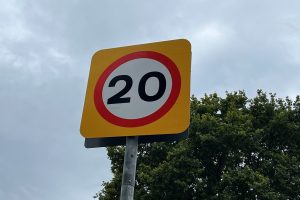One of the issues I find most bizarre as an elected member is the complete lack of coherence and cohesiveness of governance structures within Wales, writes Jonathan Edwards MP.
Local Authorities (22), Health Boards (7), Police Forces (4) and Fire Authorities (3) all have different boundary areas, each with their own layer of bureaucracies.
This is before we mention city deals and other agencies.
The question then arises what can be done to address the hotchpotch that currently operates in Wales which must be hugely inefficient when considering the requirement for public services to work together on a range of issues; not to mention major considerations surrounding political accountability, not least within the Health Service.
It seems bizarre to me that we elect 74 County Councillors in Carmarthenshire to run services such as social care and education, whilst we elect no one to be accountable for decisions by Hywel Dda Health Board despite its budget dwarfing Local Authority equivalents.
Attempts at reform have often fallen at the first hurdle because rather than looking at all public services together – boundary revies have only considered one element such as Local Authority boundaries.
Vested interests have run rings around weak Labour Welsh Government Ministers leading to the maintenance of the status quo with added piffle about collaborative working.
The Labour trend of producing “regional” solutions to these policy areas adds further confusion, with regional footprints seemingly varying with every portfolio, and conveniently blurring the line on whether local or national bodies are the ones who need to be held to account over their performance.
The first stage of any reform should begin with an exercise involving all devolved and reserved public services in Wales and working out what is a ‘national’ all-Wales service and what’s a ‘local service’.
This in itself would be a difficult task particularly for those of us who believe in national empowerment whilst supporting localism.
Once services are split into the national and local camp, it follows what size structure is needed to administer local public service delivery.
More areas of policy under a local heading would require a larger geographical structure.
It may amaze readers that our national government is not responsible for directly delivering any public service at the moment.
This enables the insane situation where Labour Ministers are able to wave placards in their constituencies against the delivery of their own policies.
Government by diktat sitting in an ivory tower in Cardiff Bay must be a cushy number, and I can see why a stagnant and moribund Labour establishment would want to avoid direct responsibility for services.
However, it’s not a particularly good form of governance if the aim is to reform in order to improve outcomes for people.
Here would be my first suggestion.
All emergency services including the Health service should be deemed national and come under the direct responsibility of Welsh Ministers where devolved (Health, Ambulance, Fire service) and report to Welsh Ministers if not, such as policing.
The same for taxation, defence, legal jurisdiction, social protection, economic strategy, environment, culture, food production and transport, whilst accepting the first three currently come under Westminster control.
Issues such as refuse collection, paths, minor roads, parks, leisure facilities, libraries, car parking would be ‘local’
A big debate will be needed around policy areas such as education, social care, and others which could fall in the local or national bracket – with the outcome of this debate then deciding what size your local service boards need to be.
Some might argue that health should be local if social care is local.
Others would argue if health is deemed a national service then so should social care in order to remove the artificial division between them.
Organising public services in this manner would quickly create greater cohesiveness, efficiency, accountability and transparency.
To complement these changes, Senedd constituencies should be based around the size of each local delivery board area.
When I tell people at the moment that they have five Senedd Members, one constituency and four regional, they look at me in amazement.
These changes could complement increasing the number of Senedd members and electoral reform.
I am probably hoping for too much, but I wish whoever forms the next Welsh Government will sit down and take a deep breath and get to grips with the overlapping bureaucratic nightmare which blights public service delivery in Wales.
Sometimes in life tinkering just isn’t good enough, a blank canvass is needed to enable some much-needed blue sky thinking.
Time for Radical Rethink on Public Service Organisation
















Add Comment